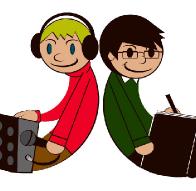Indexes and a second-hand book shop
Recently I was browsing in a second-hand book shop in Heidelberg. It's one of the oldest university towns in Europe, and the shop had a fantastic collection of ancient, old, and recent books. Unfortunately, I only had time for a short visit with my tired family wanting to get home (to our hotel) sooner than later.
So I went straight to the index pages of books with titles of interest. And to find those books, I looked around the shelves to see how the shop organised it's stock... with shelf labels providing a first level index. I soon had three books in hand, and had to stop.
Finally, at the counter, the shop assistant racked his brains for something kind to say, and observed that he had studied the subject of one my books (ethnology) and knew someone doing research in that area, and then pulled an unfamiliar name out of his mental index.
Written indexes are a natural extension of the mental indexes we all keep in our own heads.
We navigate the world by classification and association, and indexes are basically ways of organising labels (classifying information) and creating useful associations.
In that Heidelberg bookshop, I felt like I was wandering about inside the mind of a city that has been populated by students and scholars for many generations. My stay was very short, but I could meet a lot of people in a short time.


I had a very similar experience as yours in Edinburgh last year. I am always attracted by second-hand bookshops, which is in fact a passion of mine. However, in the case of Edinburgh I browsed the Internet for the closest bookshop between the conference location and my hotel. I have got only 30 minutes left to free the room and to jump on the shuttle. However, for those 30 minutes I managed to get (not without the helping hand of a young and bright Scotswoman) a book called 'Maps and Mapmakers' by R V Tooley ( http://www.worldcat.org/title/maps-and-mapmakers/oclc/86089467 ) a magnificent collection of maps from British libraries ... (the result of my book passion was a real 'jump' into the shuttle just before closing its doors. Not to mention the sweat in the cold weather and the heavy luggage as my close companions. In fact, later on I realized how close was I to miss my plane for the sole reason of buying a book...). I appreciate such works, as Tooleys', very much as they show us what we have made by hand before the digital era. Now it is much easier to build an index but yet indexes are not so common for all types of works. In this train of thoughts, it may surprise some of you, but the Chaplin's auto-biography is also a good example of an indexed book. Moreover, Chaplin did this himself as he notes, which cost him quite some time. The fact that one of the greatest comedians of all times has spared his time to index his biography says quite a lot. For instance, it says that he has appreciated finding quickly what he is looking for and also he gave the reader the ability find the important things for Chaplin himself. Hence, the index not only gives fast access to what you look for but also shows what is valuable for the writer.
The conclusion is - Keep on reading, writing, and indexing.
Best,
Lachezar
May you continue to wander in wonder of our magnificent natural world and humanity's creative hand.
I too will be producing an index for my book this month.
Slum Tagadagan Qagataa from Alaska (Happy New Year in Aleut)
Shalom
Dr. Amy Eisenberg